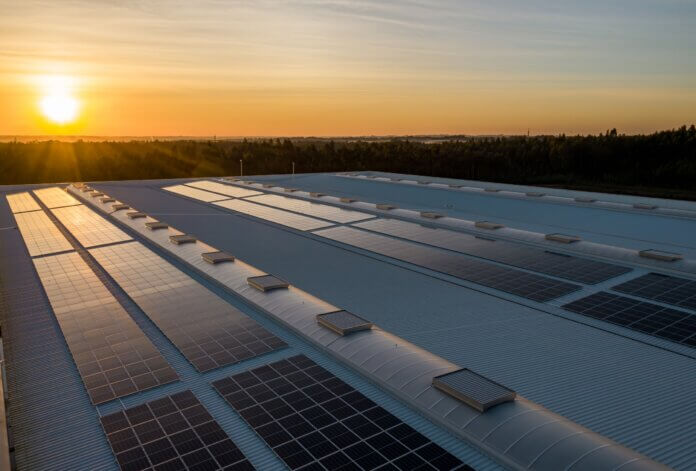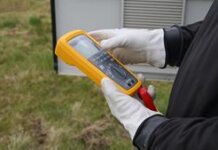The New Jersey Board of Public Utilities (NJBPU) reports that the state’s solar market surpassed 150,000 installed systems in 2021. Despite ongoing challenges from the COVID-19 pandemic, over 13,800 solar installations commenced commercial operations in New Jersey in 2021, totaling more than 305 MW DC and contributing to a statewide cumulative capacity exceeding 3.8 GW, providing power for over 150,000 New Jersey homes and businesses. A record of over 1.6 GW of projects in the pipeline provides assurances of continued strong development over the coming year.
“After a tremendous year, the future is especially bright for solar energy in New Jersey, and that’s because of our emphasis on working collaboratively with stakeholders to develop policies that advance our ambitious clean energy goals while supporting overall market health,” says Joseph L. Fiordaliso, NJBPU’s president. “By modernizing our solar programs over the past year and maintaining our focus on ratepayer affordability, we are ensuring the strength and long-term viability of New Jersey’s thriving solar industry. We are also looking ahead to the development of new programs for grid-scale and dual-use solar, as well as a permanent program for community solar.”
New Jersey’s solar market achieved various major policy milestones throughout 2021, including transitioning from the state’s legacy Solar Renewable Energy Certificate (SREC) market to a new long-term incentive through the Successor Solar Incentive (SuSI) Program. The SuSI Program is comprised of a competitive incentive for grid supply and net-metered projects greater than 5 MW, and a fixed incentive primarily for net-metered projects under 5 MW and community solar projects. Board Staff will continue its stakeholder engagement over the coming months to define the competitive process. Once fully implemented, the SuSI Program is anticipated to provide incentives to twice the amount of annual installed solar, at approximately half the per-MWh cost to ratepayers.
The Transition Incentive (TI) Program, which closed to new registrations on August 27, 2021, set a new record with over 12,570 projects in the pipeline seeking incentives for over 1,600 MW DC of capacity. This includes the 105 new community solar applications granted conditional approval to participate in Program Year 2 of the Community Solar Energy Pilot Program. These community solar projects represent 165 MW DC in planned capacity, more than twice the amount of capacity approved in Program Year 1. Additionally, 18 “subsection (t)” projects proposing to construct more than 365 MW DC on brownfields and landfills submitted applications for conditional certification before the August 27 deadline. The board will consider these applications for approval into the TI Program pipeline in 2022.
In 2021, the board also initiated a Grid Modernization Proceeding to engage stakeholders on current distribution grid interconnection policies and processes, and to solicit ideas for potential improvements to enable faster grid modernization and higher levels of distributed energy resource (DER) integration.
Staff expects another busy year in 2022 as the board works to develop and launch several new solar programs, including the SuSI Program’s Competitive Solar Incentive (CSI) Program for grid supply and large net-metered solar, a Dual-Use pilot program, and a permanent community solar program.
In July 2021, Gov. Phil Murphy signed both the Solar Act of 2021 (Solar Act, L. 2021, c. 169), which sets a framework for ongoing growth in the grid supply, net-metered and community solar markets, as well as the Dual Use Solar Act (L. 2021, c. 170), which directs the board to establish a pilot program for installing solar on unpreserved farmland while maintaining active agricultural or horticultural operations. Throughout 2022, and in close collaboration with the New Jersey Department of Agriculture and the New Jersey Department of Environmental Protection, the board will conduct robust stakeholder engagement to gather input from New Jersey solar market participants on the implementation of both laws.
The board anticipates future stakeholder engagement and program rollout, including the Competitive Solar Incentive Program with Staff Straw Proposal in spring 2022 and the first solicitation planned to occur prior to the end of the year. For the Solar Siting Criteria for CSI Program, the Staff Straw Proposal is expected in spring 2022 while the Permanent Community Solar Program will have the Staff Straw Proposal in spring 2022 and planned permanent program established in 2022. Finally, the Dual-Use Solar Pilot Program will have the Staff Straw Proposal in summer 2022 and the first solicitation anticipated to occur prior to the end of the year.
Image: Photo by Nuno Marques on Unsplash




